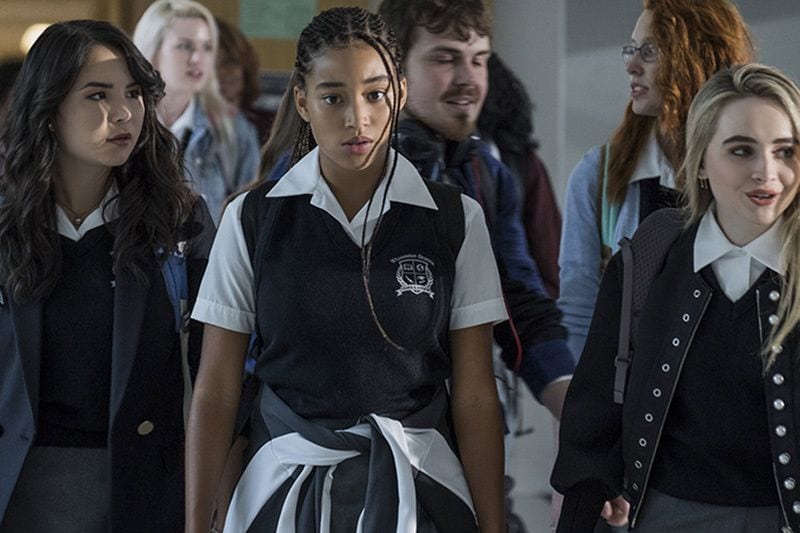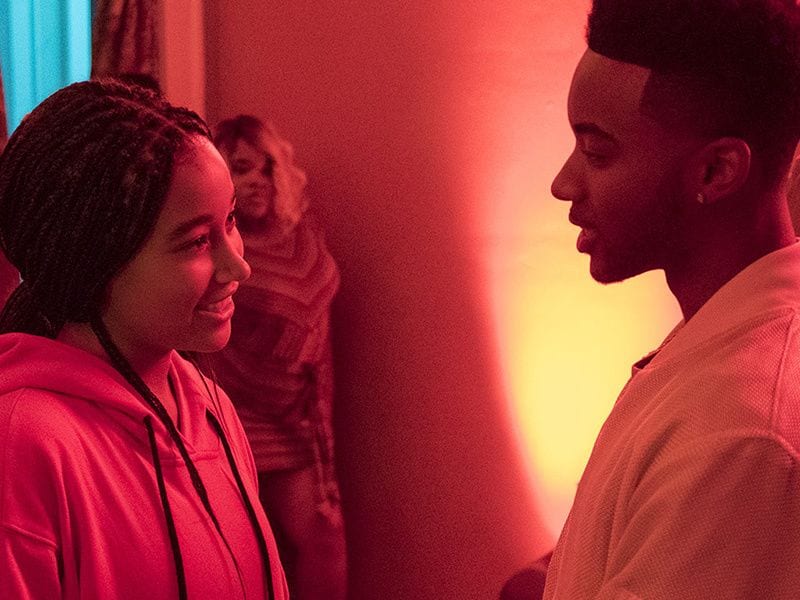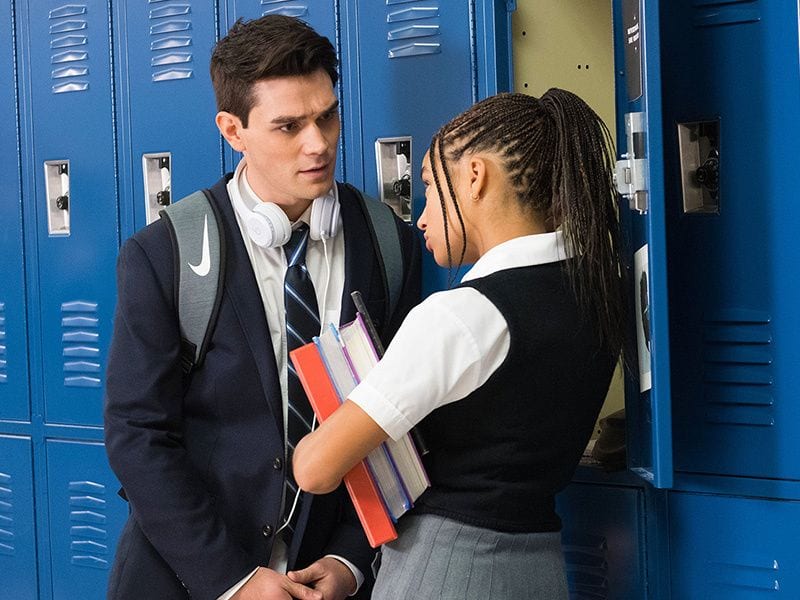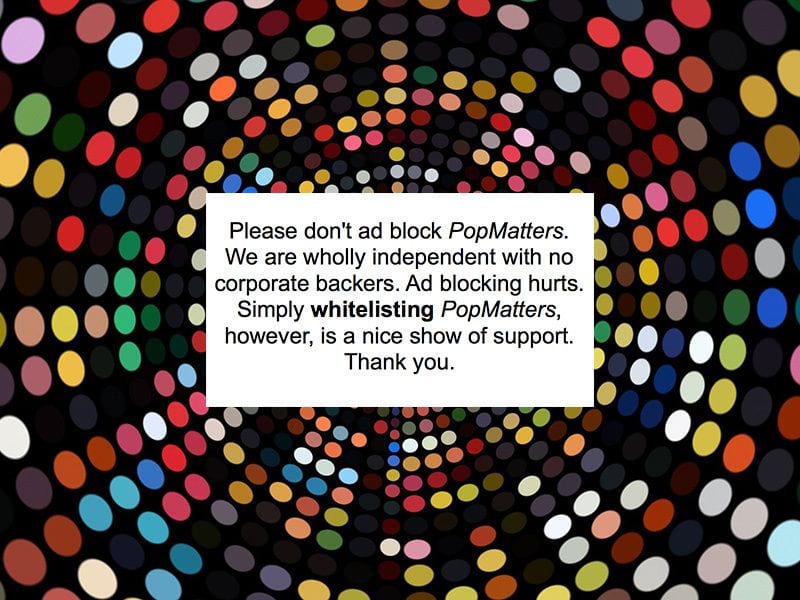
Based Angie Thomas‘s YA novel of the same name, The Hate U Give explores issues of race, identity, and injustice through the eyes of Starr (Amandla Stenberg), a girl who witnesses her best friend Khalil get gunned down by a police officer. Starr is perpetually torn between two worlds — her predominantly white school and the black community she lives in — and has learned to change her behavior to fit into both environments. But following the tragic shooting, the societal pressures reach a fever pitch. Directed by George Tillman Jr., the film explores the nuances of racial tension from all sides but focuses on Starr finding her voice and standing up for what’s right.
PopMatters speaks with Tillman, Stenberg, and Russell Hornsby (who plays Starr’s father, Mav) about audiences’ reactions to the film, talking about issues surrounding race in America in a way that’s universal, speaking with the families of real victims of police brutality and hate crimes, and the production’s surprisingly light on-set vibe. The Hate U Give is in theaters today.

I imagine this story touches everyone in a different way depending on their life experiences.
Tillman: I was blown away on Wednesday when we were in Atlanta and a 15-year-old girl got up and started crying. It’s been emotional for a lot of people, and a lot of the Q&As have been very long, in a good way. People want to have conversations. I don’t think I’ve ever been involved in a movie where it has been this emotional and involved in terms of conversation. I think that’s an ode to Angie Thomas’s book, as well.
Stenberg: I don’t think we anticipated the reactions to [The Hate U Give], but I don’t think we allowed ourselves enough space to think about that. All we were focusing on was telling the best story that we could and doing our best work. To see the responses is exhilarating and mind-blowing, especially from young, black girls who are having this real, emotional response because they feel like they are being seen and heard. It’s something that they really need.
Hornsby: I’m surprised and exhilarated by the depth of feeling I see on people’s faces. I knew we had a good project. I knew we were a part of something special. But I’m encapsulated, right? I’m just doing what I’m doing [during production]. I didn’t know what Amandla was doing with Khalil and [the rest of the scenes in the film]. I had read the script, but I didn’t see them film any of that stuff.
So when I saw the movie as a whole, I was like, wow…that’s what y’all were doing! Then I understood why people were having such emotional reactions. When George showed me some of those scenes when I was doing ADR, I broke down and just cried. I said thank you. It messed me up. I was gone. I knew right then that we had something. People come up to you, they shake your hand, give you a hug. That’s what you want.
I imagine that for a lot of people in the black community, there’s an element of recognition in The Hate U Give that only they can understand. That’s a powerful thing. But for the people who aren’t members of that community and haven’t experienced this specific kind of discrimination, surely you’re trying to engender empathy in them to find a place of understanding. So you’re talking to these two groups of the audience at once. Is that a balancing act, or is all of that complexity inherent to the story?
Tillman: It’s not really a balancing act. I always felt instinctively with work I’ve directed in the past — Soul Food (1997), Men of Honor (2000) things like that — that I can always find that blend of being truthful but also having the sophistication to where everybody can relate to [the story]. I feel like not every filmmaker can do that, but it’s something that’s instinctive for me. But I also didn’t exactly set out to [find that balance].
The themes [are there]. Everybody has a family. Everybody knows what it’s like to have an overprotective parent who wants the best for their kids. Everybody knows about finding their voice. These are all universal thoughts. I knew early on, when I went to New York Book Con and saw all of Angie’s fans, most of them were white. They already got [the story] when they read the book. It was already in the source material — Angie crossed over and already did that.
But I really do believe that it’s just about being truthful. Everybody loves hip-hop. I always believed that jazz is a black medium. But everybody enjoys it. I feel like film can do the same thing.
Stenberg: I feel like you (George) never racialized or politicized yourself for our experiences. You just allowed us the room to show up and tell the truth. That makes the story universal.
George, you’ve been working in the industry for a long time, but I assume none of your previous work has had the cultural potency of this film.
Tillman: I feel like I’ve been waiting my whole career to make a movie like this. A lot of times I criticize myself for being selective of passing on things. Mudbound was a movie that I was going to make. I developed it for about two years, but I didn’t feel something inside of it, so I just became executive producer on that film. But it led me right to [The Hate U Give].
I’ve never had a film that I felt the responsibility to get right like with this one. When we did the Khalil scene, it took us two days. I’ve never seen a set so quiet in my life. Everybody was being really serious and trying to get that information right. Amandla had to be in that space for ten hours, and we didn’t break for lunch over those two days. I’d never had that experience. Maybe the closest thing was shooting Biggie’s death scene in Notorious (2013) but this is a whole other thing. These are people’s lives. This is Philando Castile. This is Sandra Bland. You know what I mean? Emmett Till.
We were in Atlanta and we were walking out of the theater, and somebody grabbed me and said, ‘Excuse me, excuse me!’ I turned around, and the person says, ‘We’re Emmett Till’s family and we just wanted to thank you.’ I know we got the rights [to Emmett’s name for the film], but I hadn’t met with his family face to face. They took a picture with me and said thank you. Those are the kinds of things where… I’ve never had that kind of responsibility on a film before. It’s a different level for me.
Stenberg: Trayvon [Martin’s] brother was at the New York screening. We talked at the after party. Shamell Bell was a part of that [connection]. She’s an activist, and she made sure that, in making the film, we were still connecting to our communities and the people we wanted to make it for. To talk to Trayvon’s brother directly and realize that this is the person that we made this film for. The film should belong to so many people, but to talk directly to a person who had such a similar experience to this character that I was playing was just a moment I’ll never forget for the rest of my life.
This will be a very important film for a lot of people, and as you mentioned, George, there must have been a sense of duty and gravity on set. What was it like filming, knowing what this story would mean to people?
Hornsby: The vibe was lovely! It was fun. It’s typical of black folks, you know? We find joy in the pain. As Stevie Wonder said, joy in the tears. So, nobody was dour or heavy-hearted or anything like that. It’s part and parcel of who we are. We’re just used to compartmentalizing certain things and bounce in and out of certain emotions.
But I’d also like to attribute the on-set vibe to the preparedness of George, the preparedness of the actors, and the preparedness of all of the different department heads. People were prepared, so all you had to do was say action, and we were ready. We didn’t have to talk about the gravity of the story. Everybody knew that.
Stenberg: We knew what was up. [laughs]
Hornsby: We knew what was up! Because of that, we were just able to have a good time until it was time to work, you know? In between takes we were [having fun] like, ‘Hey! Hey! What’s up?’ I think that that helps the moment. It helps you concentrate even more sometimes when you can find some levity in a moment. Then you know, for the next five, ten, fifteen minutes, I really have to focus.
*
The Hate U Give movie soundtrack via Def Jam Recordings can be found here.




